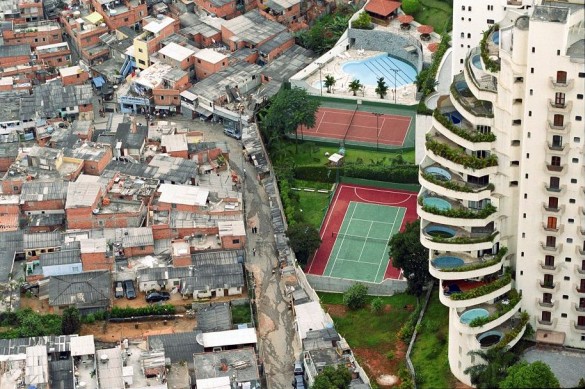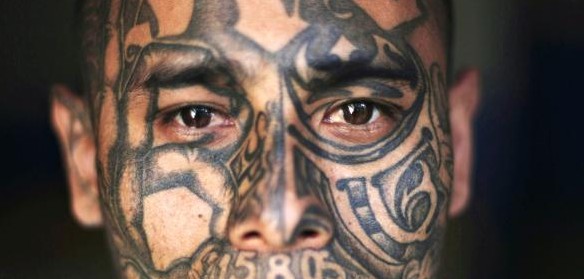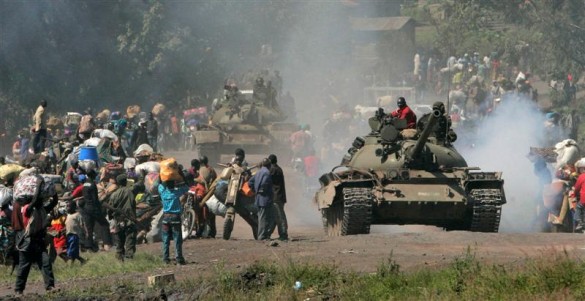American power and the fall of modernity — Part I

Modernity is still rooted in a framework of state religious nationalism. Yes, modernity made the state the arbiter of identity. For two centuries and more, collective belonging and meaning has been a state enterprise. In the great religious wars of the 20th century, millions willingly sacrificed themselves for the sacred vision of the nation-state.
Yet now that very vision is in deep recess or near-death, even as the regulatory structures of nation-states keep expanding. Western modernity’s claim of religious nationalism died in the killing fields of the last century — and with it the power of Western identity.
The air is coming out of modernity’s tires — first in the marginal places run by European colonialism, and then increasingly in the places where modernity began. Where it falters, other cultural forms rise to take up the slack. Thus, states are not weakening or failing because of “radical” or “illicit” threats.
In their stead — especially in the faux nation-states sloughed off by European colonialism — equally passionate local and universalistic visions have risen up. They lay their claims not in the consumer and social welfare-driven economies of the developed world, but with societies in need. They flourish where the demand for identity is greatest.
Modernity left a legacy where much of humanity is desperately in need of something new to belong to — and hold on to.
Today 60% of human society has been left behind. Scores of so-called nation-states cannot support raw human needs — or simply care not to — and billions are effectively being abandoned. [continued…]
Drug wars and faltering states: the demise of national identity — Part II

Our 40-year “War on Drugs” merely showcases how U.S. drug demand translates into a field of distortion that has cleared a swath of pure cultural destruction from Mexico to Ecuador.
What of gangs like Mara Salvatrucha, created by the U.S. war in El Salvador in the 1980s?
Of those refugee kids who came to the United States — only to be re-exported by us back to the slums of San Salvador in the 1990s — as many as 50,000 quickly became the shock troops of a U.S.-inspired transnational gang enterprise.
What did they begin to do when they got back home? They started taking over the country. This was a fully funded American disruption. [continued…]
American power and the fall of modernity — Part III

Moving away from modernity’s religious nationalism need not necessarily presage a world of disorder.
Rather, it suggests a world where both local and universalistic identities interact equally with the remnants of the nation-state.
We see this in the world of Islam and elsewhere with the surge of Pentecostal evangelism in Africa.
The state is supplanted in much of Africa by an intricate weave of non-state actors. Many of them are intimately connected to non-state actors in the developed world — such as missionary groups tied to the Arab region, Iran and Texas — and to Western NGOs for assistance in aid and administration.
 But even in societies with working state administrations, the non-state continues to flourish. Look at Brazil and Mexico. While the state remains effective, its base is shrinking to those more elite constituencies for whom it provides real security and services.
But even in societies with working state administrations, the non-state continues to flourish. Look at Brazil and Mexico. While the state remains effective, its base is shrinking to those more elite constituencies for whom it provides real security and services.
Meanwhile in the developed world, modernity’s first nation-states have neither the money nor the commitment to reclaim their lost stature and authority in the human ecology of today’s non-state.
Many, like the EU and Russia, feel their own national identities besieged. They fear being overwhelmed by the “other” in their own countries. Their national energies are increasingly tasked to immigration management and strategies of minority assimilation — or maybe just mitigation.
This is not a world of tariff-based deglobalization like the 1930s. It is a world of true global decompression.
Global networks will continue, but only for those who manage to “make it” by the first decades of this early-21st century. Unable to aid the 60% left behind, humanity’s prosperous minority — whether they admit it or not — is increasingly looking to its own defense and preserving the integrity of a smaller system that is still viable. Globalization is now all about a minority living defensively within a seething non-state majority. [continued…]
Michael Vlahos‘ latest book, Fighting Identity: Sacred War and World Change, is reviewed here by Michael Lind.

